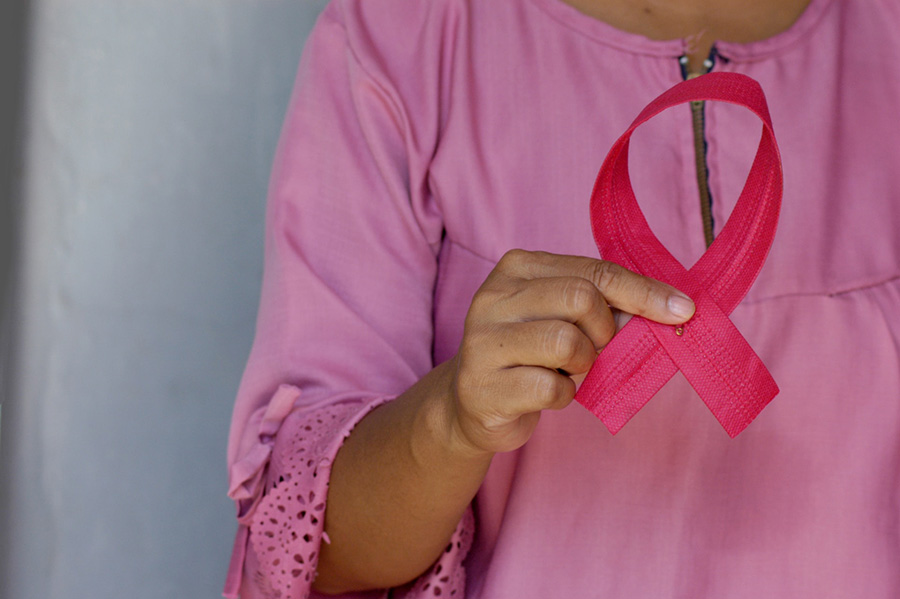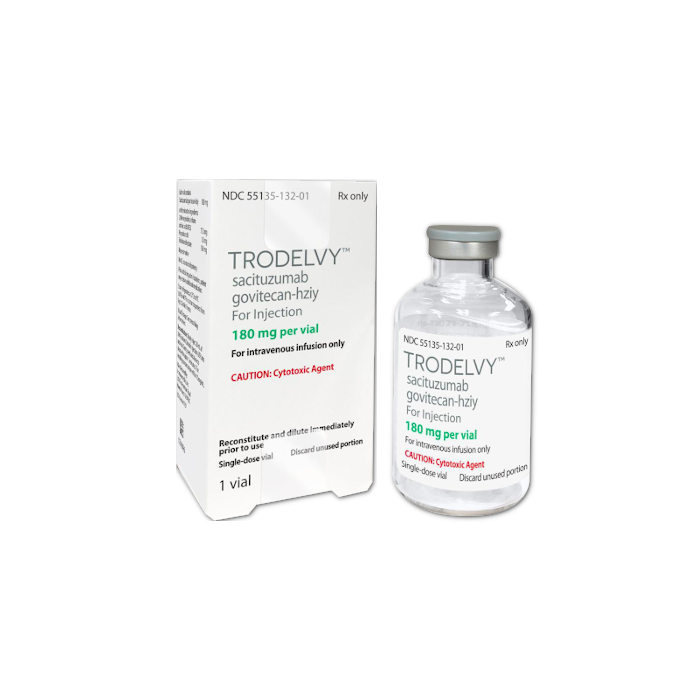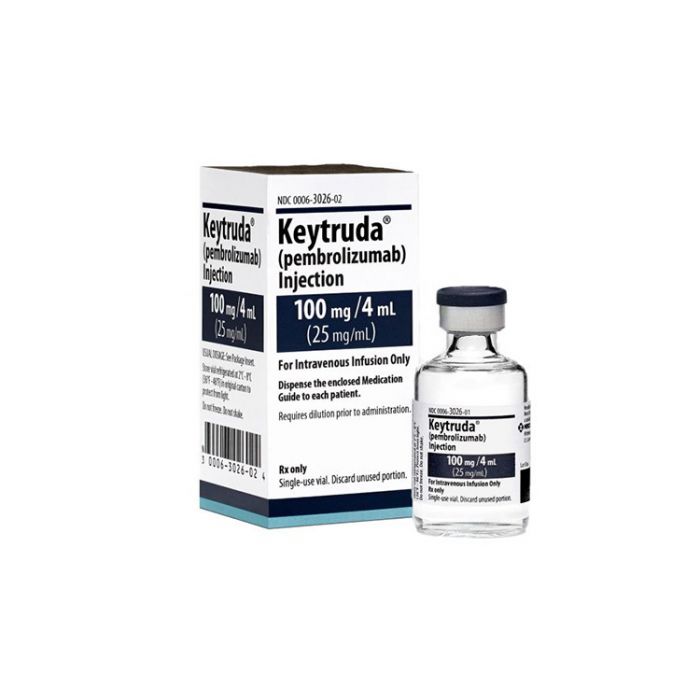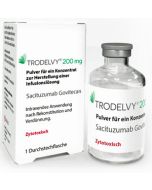New Triple Negative Breast Cancer Treatments 2022
Last updated: 18 March 2025

You can legally access new medicines, even if they are not approved in your country.
Learn howFor new HER2 positive breast cancer treatments 2020, click here.
For all breast cancer treatments on our website, click here.
What is triple negative breast cancer? 1,2
Triple-negative breast cancer (TNBC) is a cancer that tests negative for progesterone and estrogen receptors, and excess HER2 protein. This means that the growth of the cancer is not fuelled by the estrogen and progesterone hormones, or by the HER2 protein. So, TNBC does not respond to hormonal therapy medicines or medicines that target HER2 protein receptors.
What are the types of triple negative breast cancer treatments available?1,2
There are several triple negative breast cancer treatments available. The patient’s treating physician might opt for a combination of surgery, radiation, and chemotherapy.
- Mastectomy: the surgeon removes the breast and nearby lymph nodes to see if the cancer has spread.
- Lumpectomy: the surgeon removes the lump from the breast. He or she also removes nearby lymph nodes to see if the cancer has spread.
- Radiation: Lumpectomies are usually followed by radiation therapy to kill any remaining cancer cells.
- Chemotherapy: The goal of chemotherapy is to kill cancerous lumps that may have spread elsewhere in the body.
What is the triple negative breast cancer survival rate?2.3
The American Cancer Society estimates a 77% 5-year survival rate for TNBC. Each patient’s outlook depends on factors such as the stage of the cancer and the grade of the tumor.
Five-year survival rates tend to be lower for triple-negative breast cancer than for other forms of breast cancer.
What are the newest triple negative breast cancer medicines?
Several medicines have been approved or are under clinical trial for the treatment of TNBC.
Here are some of them:
Keytruda (pembrolizumab) 4
Keytruda (pembrolizumab) is used for the treatment of advanced melanoma, metastatic nonsquamous NSCLC, recurrent or metastatic Head and Neck Squamous Cell Carcinoma (HNSCC), recurrent classical Hodgkin Lymphoma (cHL), locally advanced or metastatic urothelial carcinoma, solid tumours having the biomarkers MSI-H or dMMR, recurrent locally advanced or metastatic gastric or gastroesophageal junction adenocarcinoma, triple-negative breast cancer.
On November 13, 2020, the Food and Drug Administration (FDA) granted accelerated approval of Keytruda (pembrolizumab) in combination with chemotherapy for the treatment of people with locally recurrent or metastatic triple-negative breast cancer (TNBC) whose tumors express the PD-L1 biomarker, based on improved clinical outcomes.
Tecentriq (atezolizumab) 5
Tecentriq (atezolizumab) is used for the treatment of locally advanced or metastatic urothelial carcinoma, and for the treatment of metastatic non-small cell lung cancer (NSCLC). Tecentriq in combination with nab-paclitaxel is currently approved in more than 70 countries worldwide, including the US and across Europe, for the treatment of adults with unresectable locally advanced or metastatic TNBC in people whose tumours express.
On September 19, 2020, it was announced that the IMpassion031 study in a Phase III has shown that treatment with Tecentriq continued adjuvantly (after surgery) for those in the Tecentriq arm of the study. IMpassion031 is the first Tecentriq study to demonstrate benefit in early TNBC.
On August 2019, the European Medicines Agency approved Tecentriq (atezolizumab) in combination with braxane for people with PD-L1-positive, metastatic triple-negative breast cancer.
Trodelvy (sacituzumab govitecan-hziy) 6,7
Trodelvy (sacituzumab govitecan-hziy) is used for the treatment of patients with metastatic triple-negative breast cancer (mTNBC) who have received at least two prior therapies for metastatic disease.
On 22 April 2020, The Food and Drug Administration (FDA) granted accelerated approval of Trodelvy (sacituzumab govitecan-hziy) for the treatment of patients with previously-treated mTNBC.
Talzenna (talazoparib) 8
Talzenna (talazoparib) is used for the treatment of adult TNBC patients with a mutation in the breast cancer susceptibility gene (BRCA)-mutated (BRCAm), who are human epidermal growth factor receptor 2 (HER2)-negative whose disease is locally advanced or metastatic. Metastatic breast cancer is breast cancer that has spread to parts of the body away from the breast, such as the bones or liver.
Lynparza (olaparib) 9,10
Lynparza (olaparib) is used to treat metastatic HER2-negative TNBC patients with an inherited BRCA1 or BRCA2 mutation who have previously been treated with chemotherapy.
On June 12, 2018, the Food and Drug Administration (FDA) approved Lynparza (olaparib) for the treatment of gBRCAm, HER2-negative metastatic breast cancer in patients who have previously received treatment. This is the first new class of medications to show benefit in metastatic TNBC since the introduction of cytotoxic chemotherapy. Lynparza (olaparib) is only the second oral therapy option for these patients.
How can I access a new HER2 positive breast cancer medicine?
If you’ve received a triple negative breast cancer prognosis and are trying to access a medicine that is approved outside of your country of residence, we might be able to help you access it with the help of your treating doctor. You can read more about the medicines we can help you access and their prices below:
Why access a triple negative breast cancer medicine with everyone.org?
everyone.org is registered in The Hague with the Dutch Ministry of Health (registration number 16258 G) as a pharmaceutical wholesale distributor. We have helped patients from over 85 countries to access thousands of medicines. With a prescription from your treating doctor, you can count on our expert team to safely and legally guide you to access a triple negative breast cancer medicine. If you or someone you know are looking to access a medicine that is not yet approved where they live, we can support you. Contact us for more information.
References:
Disclaimer: This article is not meant to influence or impact the care provided by your treating physician. Please do not make changes to your treatment without first consulting your healthcare provider. This article is not intended to diagnose or treat illness or to influence treatment options. everyone.org is as diligent as possible in compiling and updating the information on this page. However, everyone.org does not guarantee the correctness and completeness of the information provided on this page.








